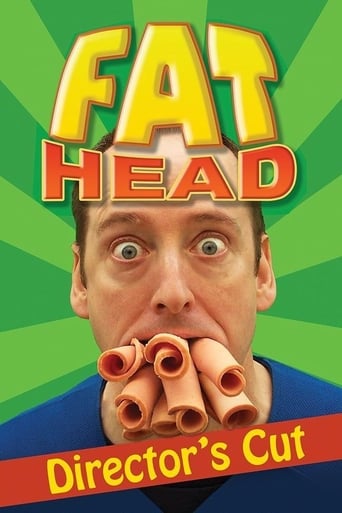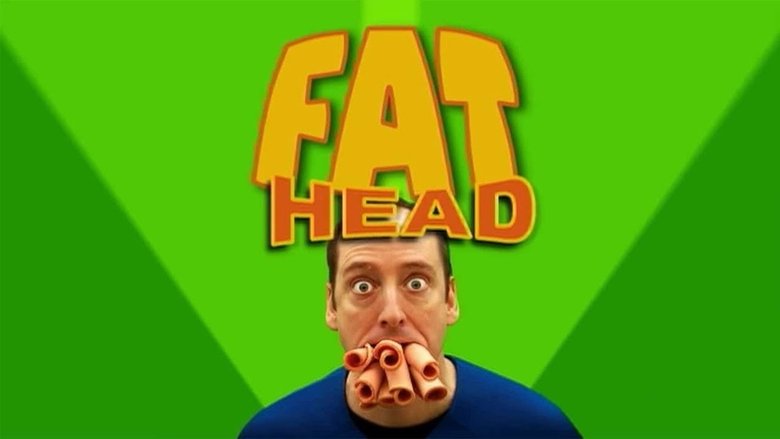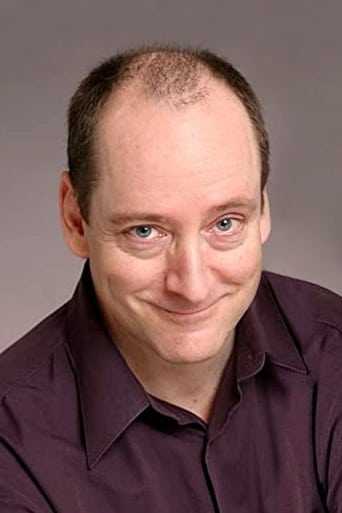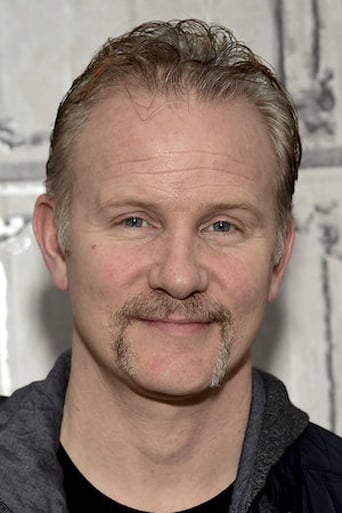

Fat Head (2009)
A comedian replies to the "Super Size Me" crowd by losing weight on a fast-food diet while demonstrating that almost everything you think you know about the obesity "epidemic" and healthy eating is wrong.
Watch Trailer
Cast
Reviews
Wow! What a bizarre film! Unfortunately the few funny moments there were were quite overshadowed by it's completely weird and random vibe throughout.
it is finally so absorbing because it plays like a lyrical road odyssey that’s also a detective story.
The movie's not perfect, but it sticks the landing of its message. It was engaging - thrilling at times - and I personally thought it was a great time.
The film never slows down or bores, plunging from one harrowing sequence to the next.
Why would someone glorify Mc Donalds and fast food. He talks about weight the whole time but does he mention quality of life, heart attacks, etc. You don't get quality of life at Mc Donalds or any fast food place. He doesn't even discuss all the chemicals , GMOs , trans fat , gluten, that come with fast food that can harm your health. This movie is ridiculous. The only people who gave him good ratings are probably overweight unhealthy fast food lovers.
Not all parents can manage keeping themselves on a healthy diet with daily exercise. What they bring to the table won't create a healthy life style for them or their children especially if they get used to it, then food like McDonald's is no longer a treat. Tom Naughton from Fat Head has tried low fat diets such as Pritikin until proved unhealthy when founder Nathan Pritikin died from Leukemia as a result. Naughton claims that low fat diets are depressing, since most of the brain is composed of fat, saturated fats are necessary to make the brain happy. But Naughton speaks from personal experience. Tom is also a father his film isn't focused on childhood obesity, but as a parent should Naughton be concerned by the epidemic. While many parents are suing McDonald's over childhood obesity, Naughton support McDonald's side instead by attacking Super-Size Me.Naughton enjoys fast-food, consider obese by the government's BMI standards, but exercises every day; so he says. Based off the current McDonald's nutrition facts, Tom Naughton claims that Morgan Spurlock calorie count from Super-Size Me made years before this movie was wrong. So without seeing the Spurlock's official food log, Naught tries to prove that fast food doesn't make you gain weight with exercise by going on an all fast food diet despite his doctor's advice, but doesn't clarify if his diet will be a month long like Spurlock's. Tom Naughton is just a computer programmer, part time comedian, who has only made this documentary, and most importantly Naughton is a parent. Whereas award winning documentary filmmaker Morgan Spurlock has made over fifty documentaries and was not a parent at time of his movie; I know Naughton's looking for a challenge, but when he said if Spurlock stayed on the McDonald's diet he would have lost the weight from Super-Size Me faster than the four months he was on a vegan diet, Spurlock overshadowed him. If McDonald's is the reason Spurlock gained that weight in the first place, why would more McDonald's be the solution? Above all Tom Naughton is in support of something that does cause obesity on daily basis, but Naughton is no Ronald McDonald restaurant mascot, he's a parent who brings the food straight to the table. Instead of making this film, Naughton should've focused his "baloney" on his own kids to see where that takes him.
I thought this documentary was all-in-all OK. I think the movie accomplished it's goal in a narrow-minded sense, which was to say that ultimately, consumers drive the market and it is up to the individual to make the correct decisions on what they are putting in their bodies. It is not the responsibility of the government to make our food choices for us. The other message that I thought was effectively conveyed was that having an occasional cheeseburger is not going to, in itself, give you a heart attack. However, depriving yourself from your biological urges can be stressful and can cause a backlash of overeating down the road.I also appreciated the point that the movie made that simple sugars and refined carbohydrates with high glycemic indices such as high-fructose corn syrup are really the major dietary issue that our country should be focused on. Type II diabetes should be the target of our concern, and not animal fats (as far as dietary implications are concerned). Also, the sedentary lifestyle that the average American lives is a huge part of the problem, probably more so than what we are eating. Try telling Chad Ochocinco that the McDonald's that he eats before every game is going to make him fat or unhealthy. On the negative side, I was off-put by the unsophisticated jabs that the movie kept taking at Spurlock and also the Vegetarian movement. I thought the movie did a poor and distasteful job of respectfully criticizing its opponents. The campy cartoons and name-calling really took away from the effectiveness of the film, and these tactics can quickly turn off an undecided audience, like me.Also, the movie focused only on dietary/health issues. I thought the movie neglected the important issues of the environmental impacts of eating so much animal meat, the economic impacts, and the treatment of workers and animals.The environmental argument: When humans eat animals, they are only utilizing 1% of the original energy in the ecosystem. When eating fruits/vegetables, we are using 10 x the energy from the environment. The rest is lost as heat/metabolic energy. Therefore, vegetarian diets are more efficient and sustainable for a large population than animal diets. The corporations also tend to be horrifically bad at keeping up to environmental and safety code, and usually find that it is more profitable to pay the fines and continue poor environmental/health safety practices, rather than correct the behaviors.The economics argument: Most major corporations are milking the profits out of local economies and not paying it back to the communities or workers. Most employees of these companies can not live off of their wages and are not provided with decent benefits. In addition, many of these companies receive government subsidies for their ingredients and their employee benefits, which comes out of the taxpayer's paycheck. So there is a hidden expense to these companies and their affiliates that you are paying out of each pay check.The animal ethics argument: The conditions that the animals live in are ridiculously poor. Most low-quality meat comes from just a few mega-slaughterhouses in the country, which is run upon the principle of "the more meat the better". The animal meat that you are eating is most likely from terribly unhealthy and mistreated animals (or in some cases genetically engineered), which hardly seems natural or healthy.In the end, I thought the movie made some interesting points and deserves a watch if you are interested in nutrition, but still needs to be taken with a grain of salt (harharhar). Some of the points were good, but the movie was overall narrow in scope and a bit cheesy.
A great movie that proves that we should all be skeptical of what 'experts' tell us and especially skeptical of what documentary filmmakers tell us. I never saw Super Size Me, but I know all too well what its conclusions were. Our media gobbled up SSM as gospel now its conclusions are part of our "conventional wisdom".This movie does a great job of reminding us to use our brains and think for ourselves. These facts alone (revealed in Fat Head) should make you question Spurlock's conclusions: - To this day Spurlock still refuses to disclose his food diary - The movie was backed by a lawyer who's suing McDonald's for billions - Spurlock's numbers of 5,000 calories a day don't add upThe movie may be a little corny and a little heavy-handed in its approach, but as believer in personal responsibility I feel it hits the mark.


